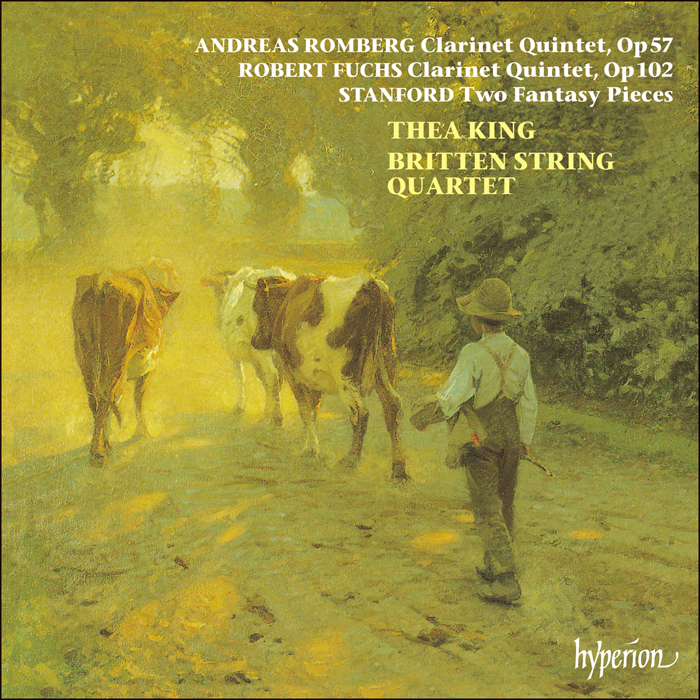Romberg (A), Fuchs & Stanford: Clarinet Quintets
Dame Thea King (clarinet), The Britten String Quartet
CDA66479
In that unthinkable Age of Grace enjoyed by all mankind before the dawning of the twentieth century—before atonality and the H-Bomb—few composers thought of writing for the clarinet in the upper part of its register, and the high piccolo clarinet (in E flat) was practically unknown outside the military band. Stridency was uncivilized. Mozart, Weber, Brahms, Reger—and lesser (but not undistinguished) luminaries like Romberg, Fuchs and Stanford—all favoured the clarinet for its lyrical, euphonious quality, its rich warmth of expression, and its deep broad range of tone colours. Until the saxophone was invented, the clarinet, of all the woodwind instruments, most nearly approximated to the human voice, and its extraordinary powers of dynamic control, especially in diminuendo and pianissimo, enable it to blend with other instruments (both strings and brass) as if it were one of the family. Another asset is the fact that the ear tires of the clarinet much less readily than any other wind instrument, so that listening to Thea King’s present recital right the way through (the works are presented in chronological order) is not a penance but a pleasure.

